President Trump’s Executive Order placing new restrictions on visa-holders and refugees is immoral and un-American, writes Dan Byman. Moreover, it will probably fail on its own terms and lead to more terrorist attacks against Americans. If terrorism does increase, he adds, support for Trump and for harsh and self-defeating policies are likely to grow. This post originally appeared on Lawfare.
President Trump’s Executive Order severely restricting visa-holders and refugees’ freedom to enter the United States is not only immoral and un-American—it’s also likely to fail on its own terms and lead to an increase in terrorist attacks against Americans. Yet if terrorism does increase, support for Trump and for harsh and self-defeating policies are likely to grow.
Let’s start with the lack of logic of the countries chosen for the ban and the actual terrorism threat facing the United States. Syrian refugees are linked to zero terrorist attacks in the United States, unsurprising given the low numbers the United States has accepted and the extensive screening they go through. Let me repeat, that number is zero. As one government official testified in 2015, “Refugees get the most scrutiny and Syrian refugees get the most scrutiny of all.” So the vetting procedures are working. Refugees from other countries affected by the ban—Iran, Iraq, Libya, Somalia, Sudan, and Yemen—have been involved in few plots since 9/11.
Syrian refugees are linked to zero terrorist attacks in the United States…Let me repeat, that number is zero.
In different ways, all these countries have a terrorism problem, but that’s not the same as saying that the people visiting America are terrorists. Indeed, residents of these countries know first-hand the evils of terrorism and loath the groups accordingly. Some of the fiercest anti-Communists came from Cubans fleeing Castro or Russians fleeing Stalin: should we be surprised that Muslims who experience evil firsthand have a visceral loathing of it too? If you don’t believe me, go to an Iranian-American neighborhood in Los Angeles and praise the Iran’s ayatollahs and see what happens.
One of the reasons for the executive order was to stop the Islamic State from infiltrating terrorists among refugees seeking asylum in the United States, but it’s hard to imagine a more foolish way for the group to do so given the scrutiny refugees receive. Nor does this order make sense looking backward. The 9/11 attacks are repeatedly invoked in the text of the executive order, but the 9/11 attackers came mostly from Saudi Arabia, with a few from Egypt, Lebanon, and the UAE. None of these countries are on the list.
Trump is also sending a message to Muslims at home and around the world—America does not like you. This vitriol makes it easier for the Islamic State and other groups to recruit. For decades jihadists have argued that the United States is engaged in a war against Islam, and Presidents George W. Bush and Barack Obama tried hard to make it clear that U.S. wrath was focused on a small group of terrorists, not Muslims in general. Trump’s actions and rhetoric add credibility to the jihadists’ narrative of civilizational war. So far the Islamic State has not formally commented on the ban, but pro-Islamic State voices are already publicizing it. The Islamic State has long advocated going after the “gray zone”—Muslims who endorse moderate politics—and the Executive Order is a way of shrinking it in the terrorists’ favor.
Ironically, after issuing the ban, Trump signed another executive order instructing the military to prepare a plan to fight the Islamic State. “Public diplomacy” and “information operations” are part of what is demanded in the order—both essential parts of any campaign, but any new government efforts in these areas will be drowned out by the disastrous message his anti-refugee rhetoric and policies send.
At home, the biggest post-9/11 counterterrorism challenge emanates from a small number of young Muslims who have radicalized with little direct guidance from the Islamic State—so called “Lone Wolves.” They might consume terrorist propaganda, but the Islamic State does not control or direct them. For the most part they are troubled and incompetent – but a troubled and incompetent person with a gun is still lethal. Trump’s Executive Order does nothing about this problem except make it more likely these deluded individuals will believe America is truly at war with Islam.
Even putting these individuals aside, Trump’s order will alienate ordinary Muslims. They are more likely to see the U.S. government as hostile and worry that any cooperation or interaction with law enforcement could make them targets of harassment or worse. Successful counterterrorism depends on community support, and the Executive Order drives communities away from government.
Trump’s order will alienate ordinary Muslims.
What is true at home is also true abroad. The military and global intelligence campaigns against terrorism depend heavily on allies. They provide bases and troops, and they share information vital to counterterrorism. In the fight against the Islamic State, the United States is cooperating with Jordan, Iraq, Saudi Arabia, Turkey, and other Muslim countries as well as substate groups composed of Muslims. The more the United States is viewed as hostile to these countries’ and groups’ local populations, the harder it is for these governments to openly cooperate with America even if it is in their own interest. Indeed, some of the countries chosen for the ban are U.S. allies. Iraqi forces, for all their flaws, are on the front lines against the Islamic State, and denigrating Iraqis as terrorists does no favors to U.S. military forces working with Iraqi partners or with forces from other Muslim countries fighting terrorism.
The horrible reality, however, is that a terrorist attack, especially one at home, is likely to “prove” that Trump is right. Terrorists’ successes are always a bit random, but at least some low-level attacks would be likely regardless of who was president. Trump, however, ran a campaign of fear and dishonesty about the terrorism threat and the attitudes of U.S. Muslims (for example, the false claim that thousands of New Jersey Muslims cheered the 9/11 attacks). Polls show fears of terrorism were at near-record levels before the election despite the small number of attacks and deaths in the U.S. since 9/11, and this fear increased support for Trump’s candidacy.
Once an attack happens, Trump will probably tweet that he called for vigilance and tough measures only to be opposed by bleeding heart liberals, the failing New York Times, and Muslim-lovers naïve to the true danger. The fact that his policies made the attacks more likely will be lost in the uproar.
The Brookings Institution is committed to quality, independence, and impact.
We are supported by a diverse array of funders. In line with our values and policies, each Brookings publication represents the sole views of its author(s).

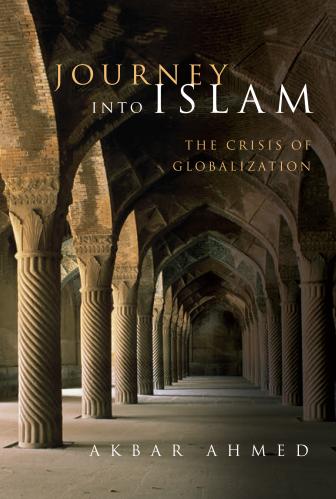
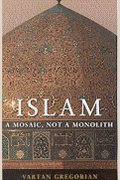
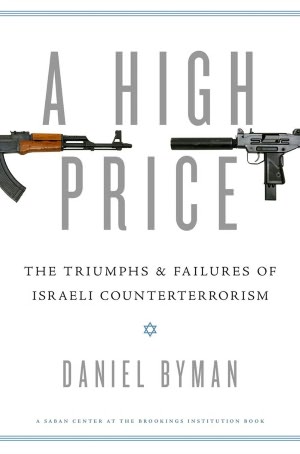
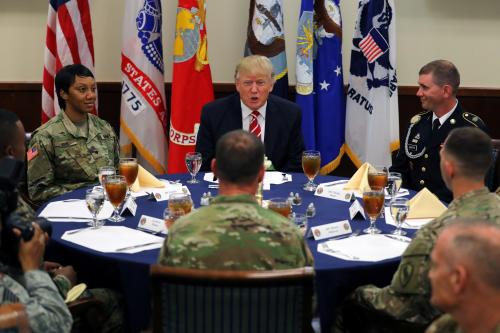
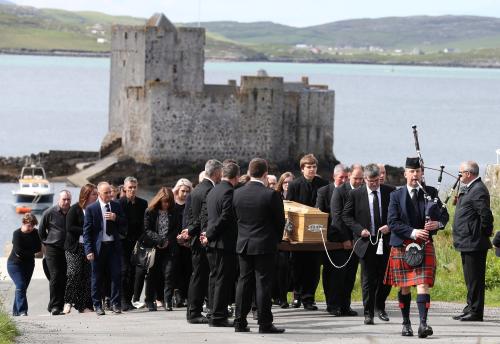





Commentary
Why Trump’s policies will increase terrorism—and why Trump might benefit as a result
January 30, 2017